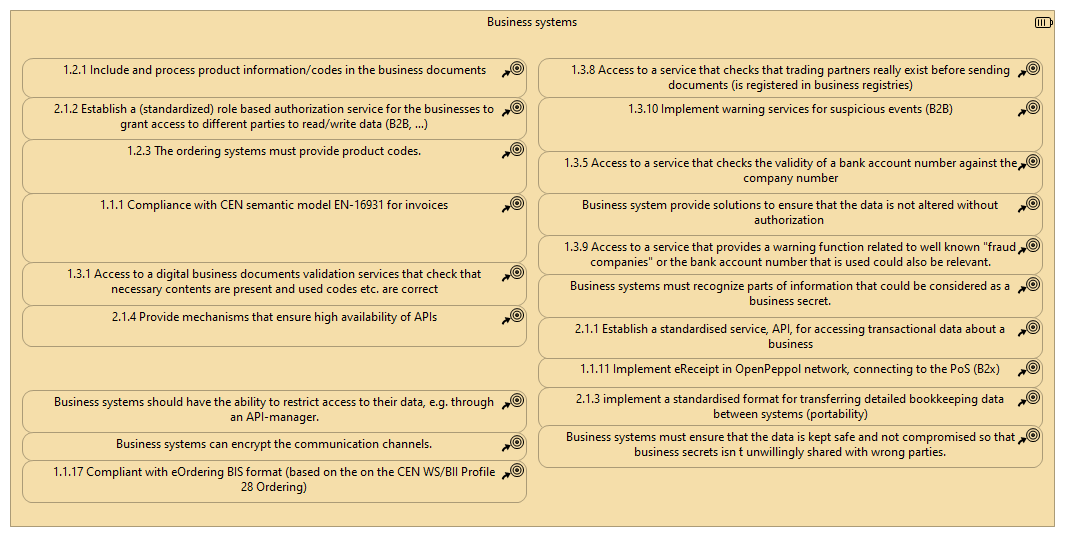| |
|
Business systems |
1.1.1 Compliance with CEN semantic model EN-16931 for invoices |
| |
|
Business systems |
1.1.17 Compliant with eOrdering BIS format (based on the on the CEN WS/BII Profile 28 Ordering) |
| |
|
Business systems |
1.2.1 Include and process product information/codes in the business documents |
| |
|
Business systems |
1.3.1 Access to a digital business documents validation services that check that necessary contents are present and used codes etc. are correct |
| |
|
Business systems |
1.3.5 Access to a service that checks the validity of a bank account number against the company number |
| |
|
Business systems |
1.3.8 Access to a service that checks that trading partners really exist before sending documents (is registered in business registries) |
| |
|
Business systems |
1.3.9 Access to a service that provides a warning function related to well known "fraud companies" or the bank account number that is used could also be relevant. |
| |
|
Business systems |
1.3.10 Implement warning services for suspicious events (B2B) |
| |
|
Business systems |
2.1.1 Establish a standardised service, API, for accessing transactional data about a business |
| |
|
Business systems |
2.1.2 Establish a (standardized) role based authorization service for the businesses to grant access to different parties to read/write data (B2B, …) |
| |
|
Business systems |
2.1.3 implement a standardised format for transferring detailed bookkeeping data between systems (portability) |
| |
|
Business systems |
2.1.4 Provide mechanisms that ensure high availability of APIs |
| |
|
Business systems |
Business systems should have the ability to restrict access to their data, e.g. through an API-manager. |
| |
|
Business systems |
Business systems can encrypt the communication channels. |
| |
|
Business systems |
Business systems must ensure that the data is kept safe and not compromised so that business secrets isn ́t unwillingly shared with wrong parties. |
| |
|
Business systems |
Business system provide solutions to ensure that the data is not altered without authorization |
| |
|
Business systems |
Business systems must recognize parts of information that could be considered as a business secret. |

